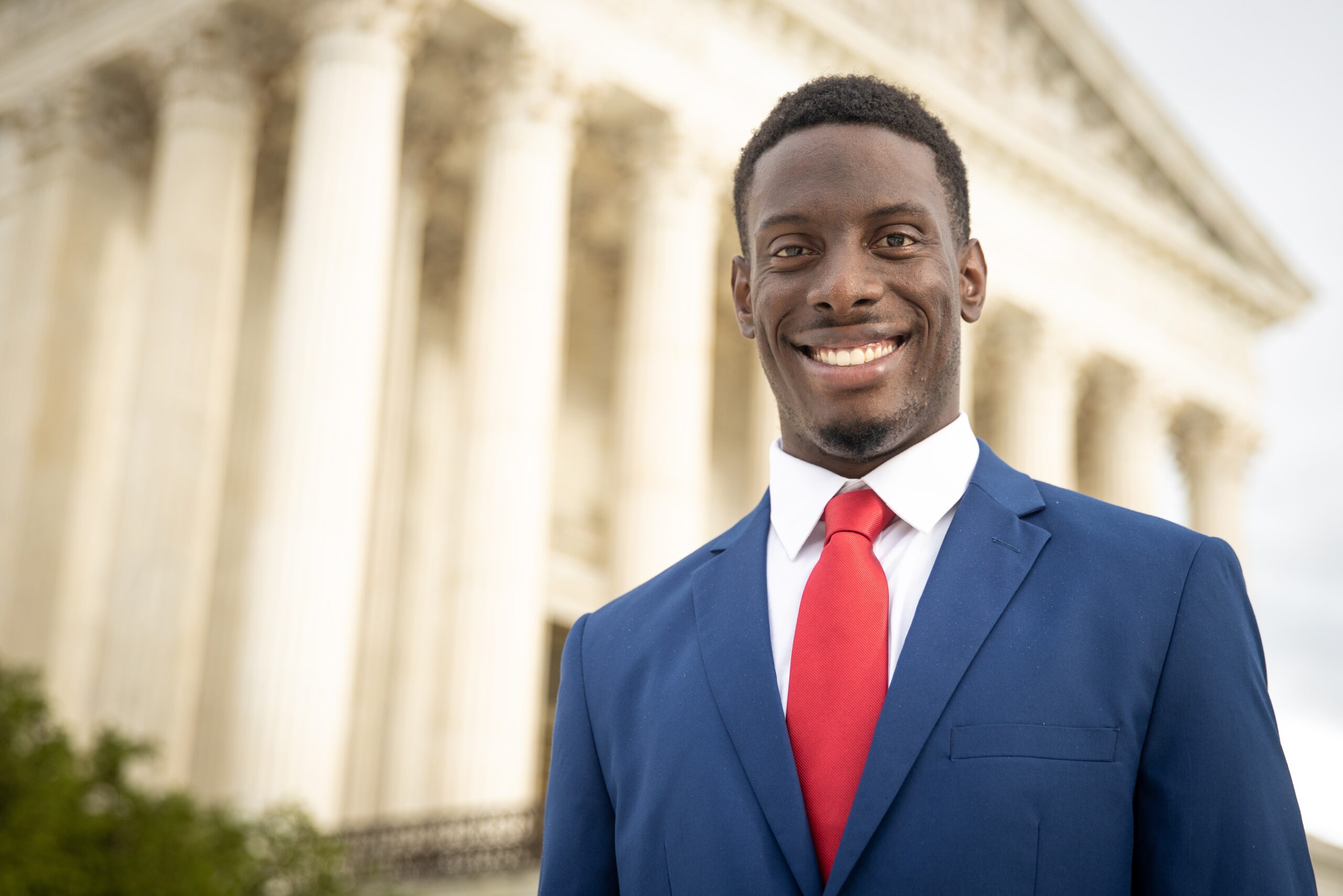WHO: Alliance Defending Freedom attorneys
WHAT: Available for media interviews after oral arguments in Uzuegbunam v. Preczewski
WHEN: Tuesday, Jan. 12, immediately following oral arguments, which begin at 9:40 a.m. EST
WHERE: Audio of oral arguments will stream live online; to schedule an interview, contact ADF Media Relations Media Relations Manager AnnMarie Pariseau at (480) 417-3975 or submit a request online
ADF attorneys filed the lawsuit, Uzuegbunam v. Preczewski, to challenge the college’s enforcement of policies restricting student expression after lawyers warned college officials three years earlier that their policies were unconstitutional. After being sued, the college argued that the First Amendment provided no protection to the students. Later, officials amended the unconstitutional speech policies but did nothing to redress their mistreatment of the two students, and lower courts declined to do anything about it.
“When government officials violate constitutional rights, it causes serious harm to the victims. Courts should hold government officials accountable for the injuries they cause,” said ADF General Counsel Kristen Waggoner, who will argue the case before the Supreme Court on behalf of the two former students. “Groups representing diverse ideological viewpoints support our clients because the threat to our constitutionally protected freedoms doesn’t stop with free speech rights or a college campus. Government officials shouldn’t get a free pass for violating constitutional rights on campus or anywhere else. When officials engage in misconduct but face no consequences, it leaves victims without recourse, undermines the nation’s commitment to protecting constitutional rights, and emboldens the government to engage in future violations.”
In 2013, Georgia Gwinnett officials received a letter warning them that the college’s speech policies were unconstitutional, but they did nothing. Three years later, college officials silenced student Chike Uzuegbunam not once, but twice, from peacefully sharing his Christian faith with fellow students in a public area of the college’s Lawrenceville, Georgia, campus.
First, officials required Uzuegbunam to get advance permission to use one of two tiny speech zones that were open less than 10% of the week and made up far less than 1% of the campus—the equivalent of a piece of paper on a football field. So Uzuegbunam obtained permission and reserved a time. But when he began sharing his faith in a speech zone, two police officers stopped him, told him someone complained about his speech, and demanded his ID, which they took back to their patrol car. The officers then said if Uzuegbunam continued to share his faith publicly, he would face discipline. Uzuegbunam stopped sharing his faith in this manner, and another student, who also planned to share his faith on campus, did not do so after seeing how officials treated Uzuegbunam.
Two federal courts, including the U.S. Court of Appeals for the 11th Circuit, said that courts need not provide any damages for past constitutional violations unless they also caused a quantifiable injury. Most federal courts would have still issued a ruling and awarded nominal damages. As ADF attorneys representing Uzuegbunam and Bradford explain, a final judicial decision is necessary to remedy past harm, prevent future misconduct, and vindicate priceless freedoms.
- Pronunciation guide: Chike Uzuegbunam (CHEE’-kay Oo-zah-BUN’-um), Preczewski (Preh-SHEV’-skee)
